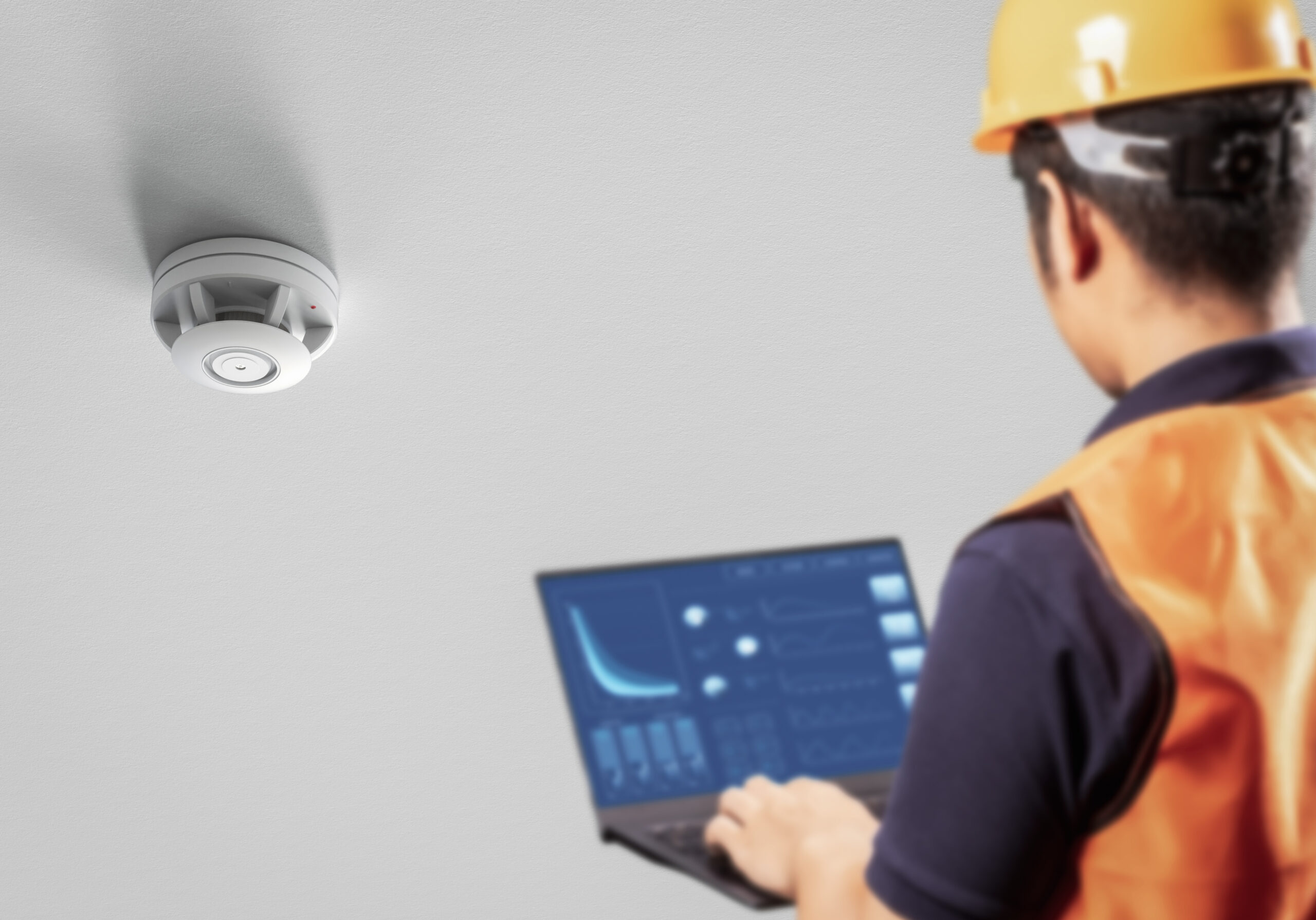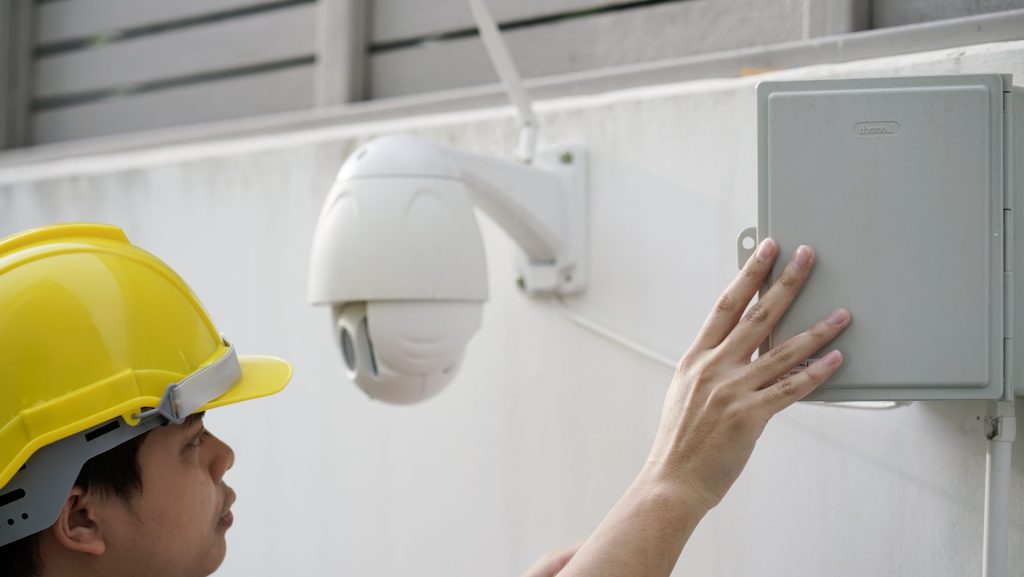Professional Security System Configuration for Safety

The FBI’s crime data shows 37% of burglaries hit stores, offices, and other businesses instead of homes [1]. This fact highlights the importance of getting professional security for these places to protect people and valuables. Setting up system configuration with cameras, alarms, and sensors helps keep spaces safe.
These setups give peace of mind that everyone and everything is protected. This article teaches readers tips for installing security and what to think about. With so many break-ins at workplaces, it’s vital to learn how to secure any site. Keep reading to find out the best ways to safeguard your place!
Key Takeaway
- Professional security systems use cameras, alarms, and sensors to enhance safety.
- Proper setup and installation ensure the system works effectively.
- Continuous support helps maintain system reliability over time.
Understanding Professional Security Systems
Security systems help keep homes and businesses safe. They use different tools and technology to protect against danger. These systems can have things like cameras, alarms, and controls over who can enter. With these tools, people can see what’s happening and react quickly if something bad occurs.
A good system does more than just watch. It can stop bad guys before they even get in. It lets users control who can go in and out of buildings. For example, people can use apps on their phones to check on their system no matter where they are. They can get alerts on their phone if anything weird happens at their home or work.
So how does this make people safer? It’s simple. A security system acts like a strong wall against threats. It gives peace of mind knowing everything is watched. Knowing that their place is monitored can help anyone feel more secure at home or at their job.
Key Components of Security Systems
1. Cameras and Motion Sensors
Cameras let people watch what’s happening inside and outside. They can record video and send alerts when needed. When used with motion sensors, they make a strong defense. Motion sensors notice when someone is near and can set off alarms if something seems weird.
2. Alarms and Alerts
Alarms are loud sounds that warn when there’s a problem. They can scare away bad visitors and tell security staff something is wrong. Alerts also send messages to people’s phones. This way, they know if something important happens, even when not home.
3. Access Control
Access controls help manage who enters a building. They use things like keycards, passwords, or fingerprints to allow entry. This keeps unwanted people out of private areas. With access controls, homes and businesses can be more secure.
4. Fire Safety Systems
Data shows 74% of homes with fires had smoke alarms [2]. This shows the big role fire safety plays in full security systems. Fire alarms and smoke detectors are important. They alert people to dangers like fires, which can save lives. When fire safety is integrated with security, it gives full protection. People can feel safe from break-ins and fires.
Importance of Professional Installation
Having a pro put in the security system is really important. Experts know how to set everything up right. They can spot weak spots in the setup. They know the best spots for cameras and sensors to get the best coverage.
Pro installers follow specific steps to get it done right:
Site Assessment: They check out the area to decide where to put cameras and alarms for maximum effectiveness.
Equipment Selection: They pick the right tools based on what that specific property needs.
Installation: They make sure everything works right and the system is ready to protect the place.
This careful approach helps avoid mistakes that could leave spots unprotected. Having a pro involved can make a big difference in how good the system works.
Benefits of Professional Security System Configuration
1. Better Performance
When an expert sets up the security system, it usually works better. Pros know how to arrange the equipment to give maximum protection. This means people can count on their system to work when they need it most.
2. Reduced Errors
Hiring pros also lowers the chance of mistakes during installation. When a security system is installed right, there’s less risk of false alarms or missed alerts. This gives a more reliable security experience.
3. Ongoing Support
Many security companies give ongoing support after installation. They can help with maintenance and updates, making sure the system stays effective over time. This can include checking the system regularly to ensure everything’s working well.
4. Compliance with Laws
Pros know the rules about security systems. They make sure installations follow local laws and safety standards. This helps avoid issues later and keeps everyone safe.
Choosing the Right Security Kit

When picking a security kit, it’s important to think about what’s needed. Different systems come with different features. Here are some key things to look at:
Camera Quality: Get high-resolution cameras that give clear pictures. Clear videos can make a huge difference in seeing what happened.
Alarm Features: Choose systems with loud alarms and smart alerts to tell users quickly.
Mobile Access: Pick systems that connect to apps, so users can check security from anywhere. This adds convenience and peace of mind.
Sensor Types: Look at different sensors like motion, door, and glass break sensors. These features can offer full protection against different threats.
Taking time to look at these points can help people find the best security kit for their needs.
Understanding Costs and Quotes
Lots of people wonder about how much a professional security system costs. Prices can vary based on what’s needed. Some systems have monthly fees for monitoring, while others may need a one-time fee to install.
To find the best choice, it’s smart to ask for free quotes from different companies. Comparing prices helps people see what they can get within their budget. It also lets them see what features come in different packages. This way, users can make informed choices and find a system that fits their needs without overspending.
FAQ
How do I choose between DIY systems and professional security systems?
While DIY systems offer more affordable options and easy setup, professional systems provide dedicated security teams and faster response times. Consider your budget, technical comfort, and whether you want professional monitoring. DIY systems work well for basic needs, while professional options suit those wanting comprehensive coverage.
What are the essential components needed for proper setup of a security hub and control panel?
A complete system typically includes door sensors, window sensors, motion sensors, and a central control panel. Most systems now offer mobile app access and smart locks integration. The security hub connects these components, enabling remote access and real-time monitoring through cloud storage.
Which safety devices and smart devices should I include for the best build of my entire system?
Start with door and window sensors for entry points, add PIR motion sensors for indoor coverage, and smart lights for deterrence. Consider adding indoor cameras and outdoor cameras plus a video doorbell for video security. Many systems offer smart locks and smart lighting options for added convenience.
What should I know about access control and life safety features when designing my security system?
A wide range of access systems exists, from basic key fob entry to sophisticated access control solutions. For life safety, include panic buttons and burglar alarm features. Consider low voltage requirements and ensure proper placement of door sensors. Most systems offer remote access through mobile apps.
What are the pros and cons of different security alarm systems for small business protection?
Professional systems offer high quality monitoring and fast protect features but cost more. Cloud storage and security data management vary by provider. Compare response times, system design flexibility, and product specs. Consider whether you need advanced features like video security or just basic control panels.
What industry best practices should I follow when setting up smart security components?
Ensure proper setup of all security devices, including smart devices and safety devices. Place motion sensors strategically, test door and window sensors thoroughly, and verify smart lock functionality. Configure your control panel and security hub correctly. Most systems offer remote access options – set these up securely.
How can I get a free quote for my security system and what should I compare?
When requesting a free quote, compare product specs, system design, and control panels from different providers. Ask about their top picks based on your needs. Most companies offer wide range of options for both small business and residential security.
What are the best practices for installing smart devices like indoor camera and video doorbell?
Position your video doorbell at front door for optimal view. Place indoor camera strategically for maximum coverage. Consider adding smart lighting around entry points. Many systems now include these security devices in their product specs, making the entire system more comprehensive.
How do I ensure my security data stays protected when using cloud storage and remote access?
Modern security systems offer cloud storage for video footage and security data. Look for systems with high quality encryption and secure remote access protocols. The best build will include strong data protection features, whether you’re using Google Nest or other smart security platforms.
What makes industry best security systems worth their price?
The best security systems typically include alder security features, fast protect response capabilities, and professional security team support. They offer smart devices compatibility and industry best monitoring standards. Consider response times and control panels functionality when evaluating systems offer value.
Final Thoughts
Picking and setting up a pro security system matters for protection. It takes many steps, from choosing the right gear to installing it correctly. With the ideal setup, people can feel safe at home or work. By learning how these systems work and their benefits, anyone can make an informed choice. Security isn’t just having devices; it’s using them effectively to make an environment safe.
References
- https://www.gensecurity.com/resources/guide-to-commercial-security
- https://www.safehome.org/data/home-security-statistics/